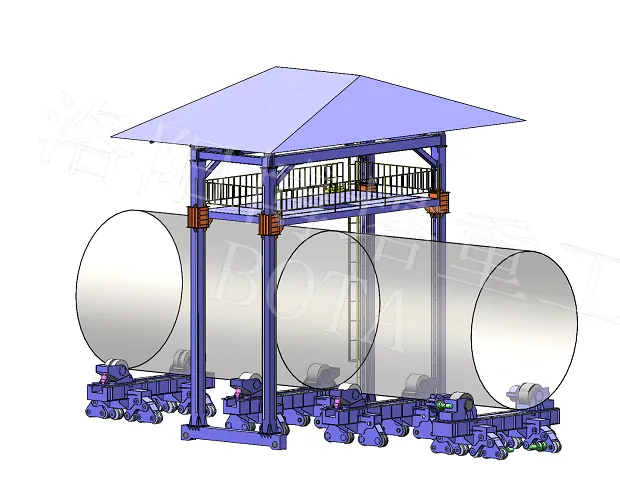The production process of a wind tower welding production line involves several key stages, each requiring precision and advanced machinery to ensure the structural integrity and performance of the wind tower. Here’s an overview of the typical production process:

1. Material Preparation
Plate Cutting: Steel plates are cut to the required size using CNC plasma or laser cutting machines. This ensures high precision and minimizes material wastage.
Edge Preparation: The edges of the cut plates are beveled to prepare them for welding. This can be done using milling or grinding machines.
2. Rolling
Plate Rolling: The beveled plates are fed into a rolling machine to form cylindrical or conical sections. This process involves passing the plates through a series of rollers that gradually bend the plate into the desired shape.
3. Fit-Up and Tack Welding
Section Fit-Up: The rolled sections are aligned and fitted together using fit-up rotators or positioning equipment to ensure proper alignment.
Tack Welding: Initial tack welds are made to hold the sections in place. This step is critical to maintaining alignment during subsequent welding processes.
4. Main Welding
Seam Welding: The main longitudinal and circumferential welds are made using automatic or semi-automatic welding machines. Common welding methods include submerged arc welding (SAW), gas metal arc welding (GMAW/MIG), and flux-cored arc welding (FCAW).
Inspection and NDT: Non-destructive testing (NDT) methods such as ultrasonic testing (UT), radiographic testing (RT), or magnetic particle testing (MT) are performed to check for weld defects and ensure weld quality.
...
For more detailed information about the production process of the wind tower welding production line, please click here:https://www.bota-weld.com/en/a/news/wind-tower-welding-production-line-production-process.html